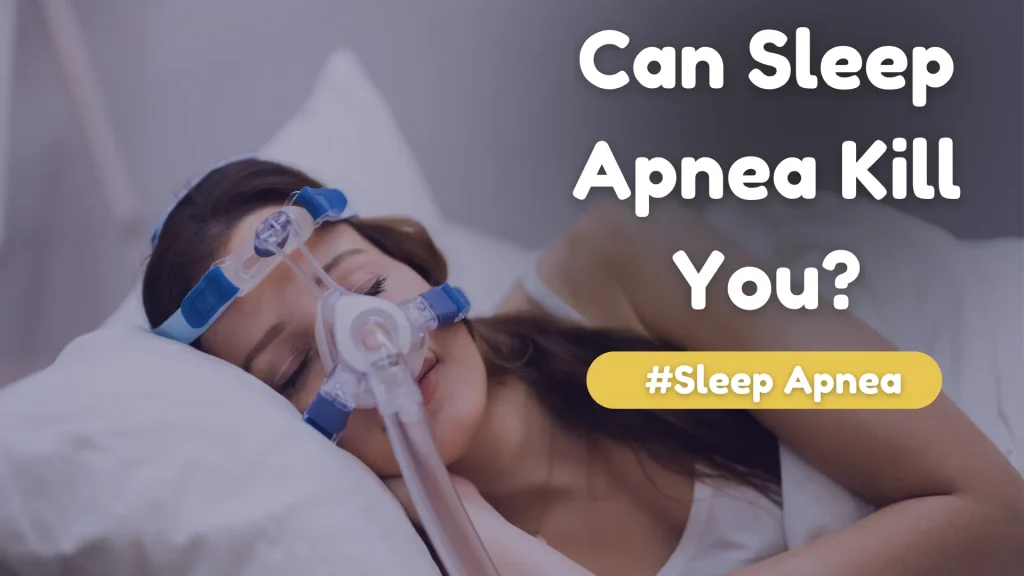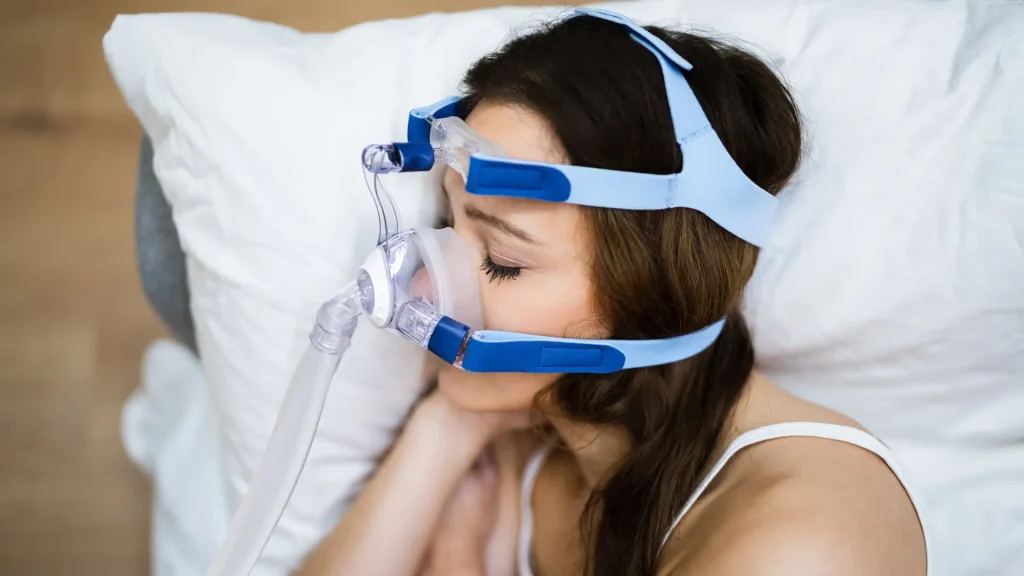Posted on Sunday, September 1st, 2024 at 9:00 am
Can sleep apnea kill you? It may seem like a loaded question, but sleep apnea can increase a person’s risk of significant and potentially life-threatening health complications and medical conditions. Research also shows when left untreated, sleep apnea can also contribute to the risk of sudden death.
Sleep apnea is more than a sleep or breathing condition. It is a significant medical condition that can impact numerous areas of your physical and mental well-being when left untreated. Understanding how sleep apnea can affect your health is the spark many people need to seek proper diagnosis and treatment. At Silent Night Therapy, we want to educate people on how sleep apnea affects an individual’s overall health and, when ignored, how it may kill you.
What Is Sleep Apnea?
Sleep apnea is a sleep disorder characterized by repeated interruptions in breathing during sleep, which can occur multiple times throughout the night. This condition interrupts a person’s normal sleep cycle, which can lead to numerous physical and mental health concerns. Obstructive Sleep Apnea, or OSA, is the most common form of sleep apnea and comes from a physical airway blockage, usually when the soft tissue at the back of the throat collapses during sleep.
Common sleep apnea symptoms include loud snoring, gasping for air during sleep, frequent awakenings, morning headaches, sore throat, irritability, and excessive daytime sleepiness. If left untreated, sleep apnea can lead to health issues such as hypertension, heart disease, stroke, type 2 diabetes, and even mental health and psychiatric problems like depression and anxiety.
Can Sleep Apnea Kill You?
Technically, yes. When left untreated, sleep apnea does have the potential to lead to significant health complications and potentially death. Sleep apnea can increase a person’s risk of developing significant cardiovascular conditions like high blood pressure, coronary artery disease, stroke, and potentially heart failure. When not caught and addressed, these cardiovascular conditions can lead to death. The Centers for Disease Control and Prevention list heart disease as the leading cause of death in the U.S., killing one person every 33 seconds. In 2022 data, stroke is the fifth cause of death in the United States, with more than 165,000 deaths.
Physicians and researchers surmise that sudden death in obstructive sleep apnea cases may result from abrupt cardiac events, where the heart stops or irregularly beats. Sudden death from sleep apnea is typically more prevalent in those over 60.
Sleep Apnea and Mental Health
Many people are unaware of how sleep apnea can kill you in ways beyond what they might expect. It is not only the physical complications individuals need to worry about but the mental issues as well. Sleep apnea often leads to poor sleep quality, leaving sufferers feeling groggy, tired, and irritable the next day. Prolonged periods of inadequate or poor sleep can increase a person’s risk of being involved in a significant and potentially fatal accident. Fatigue slows your mental and physical reflexes, impairing coordination and judgment. Some studies suggest that drowsy driving can be as dangerous as drunk driving. The National Highway Traffic Safety Administration estimates that in one year, drowsy driving killed at least 684 people.
What’s even more shocking is that some research indicates that obstructive sleep apnea may increase a person’s risk of self-harm and suicide. It may be possible that the mental health issues related to sleep apnea, such as depression and anxiety, may elevate a person’s risk of committing suicide. Evidence suggests sleep apnea may increase the risk of cognitive conditions like dementia and Alzheimer’s later in life. Alzheimer’s disease and dementia are eventually fatal.
How Do You Treat Sleep Apnea?
Sleep apnea doesn’t have to be a doom and gloom scenario. There are ways to manage the condition, but diagnosis is the key. Sleep apnea kills because it is often left undiagnosed and untreated. Proper diagnosis, treatment measures, and monitoring of the condition by a knowledgeable medical professional can help reduce your risk of developing a significant and potentially fatal health condition.
The treatment depends on the type of sleep apnea and the severity of the condition. Some of the most common treatment options available include:
- Lifestyle modifications
- Oral appliances
- CPAP machine
- Upper airway surgery
If you exhibit any symptoms of sleep apnea, it is time to talk to a medical professional who can help you find your way back to a better night’s sleep.
Get a Sleep Consultation Scheduled Today
Untreated sleep disorders can negatively impact physical and mental health. At Silent Night Therapy, our New York sleep apnea specialists can help you find answers and treatment solutions. Call our office today at 631-983-2463 or contact us online to arrange a complimentary sleep consultation.
Related Posts
The Deadly Effects of Untreated Sleep Apnea
Will Sleep Apnea Affect Your Life Expectancy?

